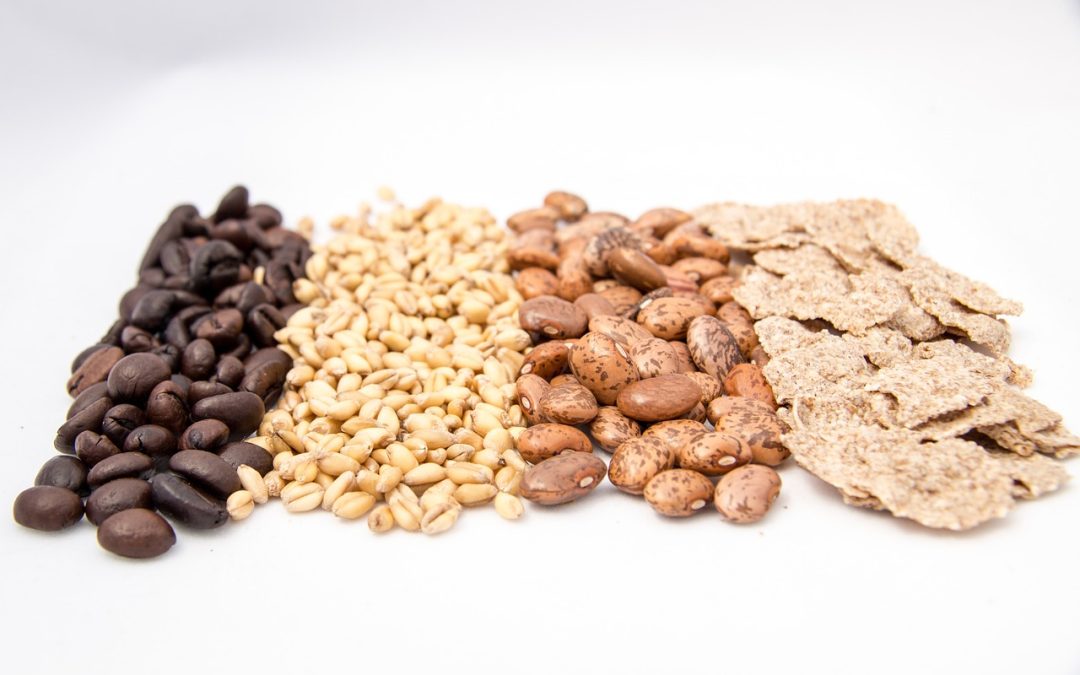Welcome to the world of whole food nutrition, where you can enhance your health and well-being by simply incorporating nutrient-rich foods into your diet. By opting for whole foods over processed alternatives, you are providing your body with the essential vitamins, minerals, and antioxidants it needs to thrive. Say goodbye to artificial preservatives and hello to vibrant, fresh produce that supports your overall health. Make the switch to whole food nutrition today and feel the difference in your energy, mood, and vitality. Have you ever wondered about the impact that the food you eat has on your overall health and well-being? You may have heard about the benefits of whole food nutrition, but do you truly understand how it can enhance your health? In this article, we will explore the power of whole food nutrition and how it can positively affect your body.
Understanding Whole Food Nutrition
Whole food nutrition is a concept centered around eating foods that are as close to their natural state as possible. This means consuming foods that are minimally processed and free of artificial additives. By choosing whole foods, you are providing your body with essential nutrients such as vitamins, minerals, fiber, and antioxidants that are necessary for optimal health.
Whole foods include fruits, vegetables, whole grains, nuts, seeds, and lean proteins that have not been altered or stripped of their natural nutrients. These foods are packed with the vitamins and minerals your body needs to thrive and function at its best.
Benefits of Whole Food Nutrition
Eating a diet rich in whole foods has numerous benefits for your health. These benefits include:
-
Improved Digestion: Whole foods contain fiber, which aids in digestion and promotes regular bowel movements. This can help prevent digestive issues such as constipation and bloating.
-
Increased Energy Levels: Whole foods provide a steady source of energy that can help you feel more alert and focused throughout the day. Unlike processed foods that can cause energy crashes, whole foods provide sustained energy that lasts.
-
Supports Weight Management: Whole foods are typically lower in calories and higher in nutrients than processed foods, making them an excellent choice for those looking to maintain a healthy weight.
-
Boosts Immune Function: Whole foods are rich in vitamins and minerals that support a healthy immune system. By consuming a variety of whole foods, you can strengthen your body’s defenses against illness and disease.
Incorporating Whole Foods into Your Diet
Now that you understand the benefits of whole food nutrition, you may be wondering how you can incorporate more whole foods into your diet. The good news is that it doesn’t have to be complicated or expensive. Here are some tips to help you get started:
Shop the Perimeter of the Grocery Store
When you go grocery shopping, focus on shopping the perimeter of the store where you will find fresh produce, lean proteins, and whole grains. This is where the majority of whole foods are located, while processed foods are typically found in the center aisles.
Choose Colorful Foods
Fruits and vegetables that are rich in color are packed with vitamins, minerals, and antioxidants. Make it a goal to include a variety of colorful foods in your meals to ensure you are getting a wide range of nutrients.
Prepare Meals at Home
Cooking meals at home gives you control over the ingredients you use and allows you to make healthier choices. Try experimenting with new recipes that incorporate whole foods and flavors to keep things interesting.
Plan Ahead
Planning your meals for the week can help you stay on track with your whole food nutrition goals. Make a grocery list and prep ingredients in advance to make mealtime easier and more convenient.

Whole Food Nutrition vs. Supplements
While whole food nutrition is essential for optimal health, you may be wondering if supplements are necessary. Supplements can be beneficial in certain situations, such as when you have a deficiency in a particular nutrient or are unable to get enough through your diet.
However, it is important to remember that supplements are not a replacement for whole foods. Whole foods contain a complex mix of nutrients that work together synergistically to support your health. This is why it is always best to focus on getting your nutrients from whole foods whenever possible.
When to Consider Supplements
If you are considering taking a supplement, it is a good idea to consult with a healthcare provider or a registered dietitian to ensure you are choosing the right one for your individual needs. Supplements should be used to complement a healthy diet, not replace it entirely.
Whole Food Alternatives to Supplements
Instead of relying solely on supplements, consider incorporating whole foods into your diet that are rich in the nutrients you may be lacking. For example, if you are low in iron, try adding more lean meats, spinach, and legumes to your meals.
Quality Matters
When choosing supplements, opt for high-quality products from reputable brands that have been tested for purity and potency. Look for supplements that are made from whole foods or are derived from natural sources whenever possible.
The Role of Whole Foods in Disease Prevention
One of the most significant benefits of whole food nutrition is its ability to prevent chronic diseases such as heart disease, diabetes, and cancer. By consuming a diet rich in whole foods, you can reduce your risk of developing these conditions and improve your overall health.
Heart Health
Whole foods such as fruits, vegetables, whole grains, and fatty fish are known for their heart-healthy benefits. These foods can help lower cholesterol levels, reduce inflammation, and support healthy blood pressure, all of which are important for heart health.
Diabetes Management
Whole foods that are low in sugar and high in fiber can help regulate blood sugar levels and prevent spikes and crashes throughout the day. By incorporating whole grains, legumes, and non-starchy vegetables into your diet, you can better manage your blood sugar and reduce your risk of developing Type 2 diabetes.
Cancer Prevention
Certain whole foods are packed with antioxidants and phytochemicals that have been shown to have cancer-fighting properties. Consuming a diet rich in fruits, vegetables, nuts, and seeds can help reduce inflammation, oxidative stress, and cell damage that can lead to cancer development.

Making Whole Food Nutrition Sustainable
While incorporating more whole foods into your diet is essential for your health, it’s important to make sustainable changes that you can maintain long term. Here are some tips to help you make whole food nutrition a sustainable part of your lifestyle:
Start Small
Making drastic changes to your diet all at once can be overwhelming and unsustainable. Start by making small changes, such as swapping out processed snacks for whole fruit or adding an extra serving of vegetables to your meals.
Find What Works for You
Experiment with different whole foods and cooking methods to find what you enjoy and what fits your lifestyle. Try new recipes, ingredients, and meal prep techniques to keep things interesting and prevent boredom.
Allow for Flexibility
It’s okay to indulge in your favorite treats occasionally or have a meal that doesn’t consist of entirely whole foods. The key is to focus on consistency and balance rather than perfection.
Stay Educated
Continuously educate yourself about the benefits of whole foods and how they can improve your health. The more you know, the more motivated you will be to make healthy choices and prioritize whole food nutrition.
Conclusion
In conclusion, whole food nutrition is a powerful tool for enhancing your health and well-being. By consuming a diet rich in whole foods, you can provide your body with the essential nutrients it needs to thrive, prevent disease, and maintain a healthy weight. Remember to focus on incorporating a variety of whole foods into your diet, planning ahead, and making sustainable changes that you can maintain long term. Your body will thank you for it in the long run.








